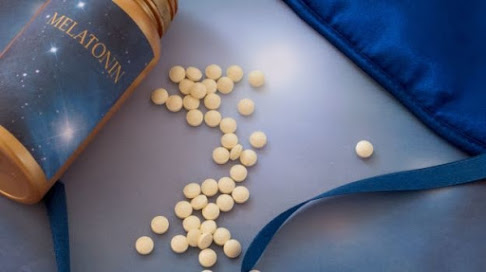Melatonin Regulates Sleep/Wake Pattern of Human Body and Helps Treat Short-Term Treatment of Insomnia
Various companies in Japan are fighting the country’s sleeplessness epidemic. Sleep is one of the most precious gift of nature to mankind. It helps us to go to dream and to remember all our dreams, while it helps us get back on track after a long sleep. As much as we sleep, we can hardly do anything or even nothing at all. The human mind is active during the waking hours, while the body rests in between. This explains why sleep is such an important part of our lives.
Melatonin, a hormone of pineal gland, is the master circadian clock. It is also a neurotransmitter, which belongs to the photoreceptor group of the nervous system, in fact it regulates the phase of the human body's circadian rhythm. Instead of the normal rods and cones, melatonin is now a newly discovered class of photoreceptor cells, which directly regulates the light and darkness cycles, thus controlling the secretion of melatonin from the pineal gland.
Melatonin regulates the sleep/wake pattern of the human body. At the cellular level, melatonin has a profound effect on the functions of the photoreceptor layer of the retina of the brain. The pineal gland surrounds the retina and receives its melatonin from the retina, which then converts it into the hormone. Besides being the master circadian clock of the body, the pineal gland also has direct impact on many other physiological processes - immunity, hormone regulation, and growth, and even on the sleep-wake patterns of the pineal gland.
The pineal gland is the main melatonin regulator. It controls and coordinates the sleep/wake internal clock of the body, making sure that the correct timing of the internal "biological clock" is maintained. During the sleeping period, the pineal gland controls the generation of melatonin from the pinealocytes. Melatonin, produced by the pineal gland is responsible for initiating sleep and keeping the pinealocytes in a periodical state of arousal, allowing the pineal gland to re-establish its function in the evening.
Melatonin regulates many processes in the body and is produced during the first half of the sleep cycle when the pineal gland is in its peak alerting phase. The pineal gland then releases melatonin as a sleep regulator, allowing the person to have a good night's sleep and reducing the risk of having insomnia or other serious health problem. The role of melatonin in the environment is still not completely understood. Scientists know that the hormone has an effect on the retina, but they are not exactly sure how it does so. In addition to light exposure, researchers are also looking into the role of melatonin in cancer prevention and possibly even Alzheimer's disease.




Comments
Post a Comment